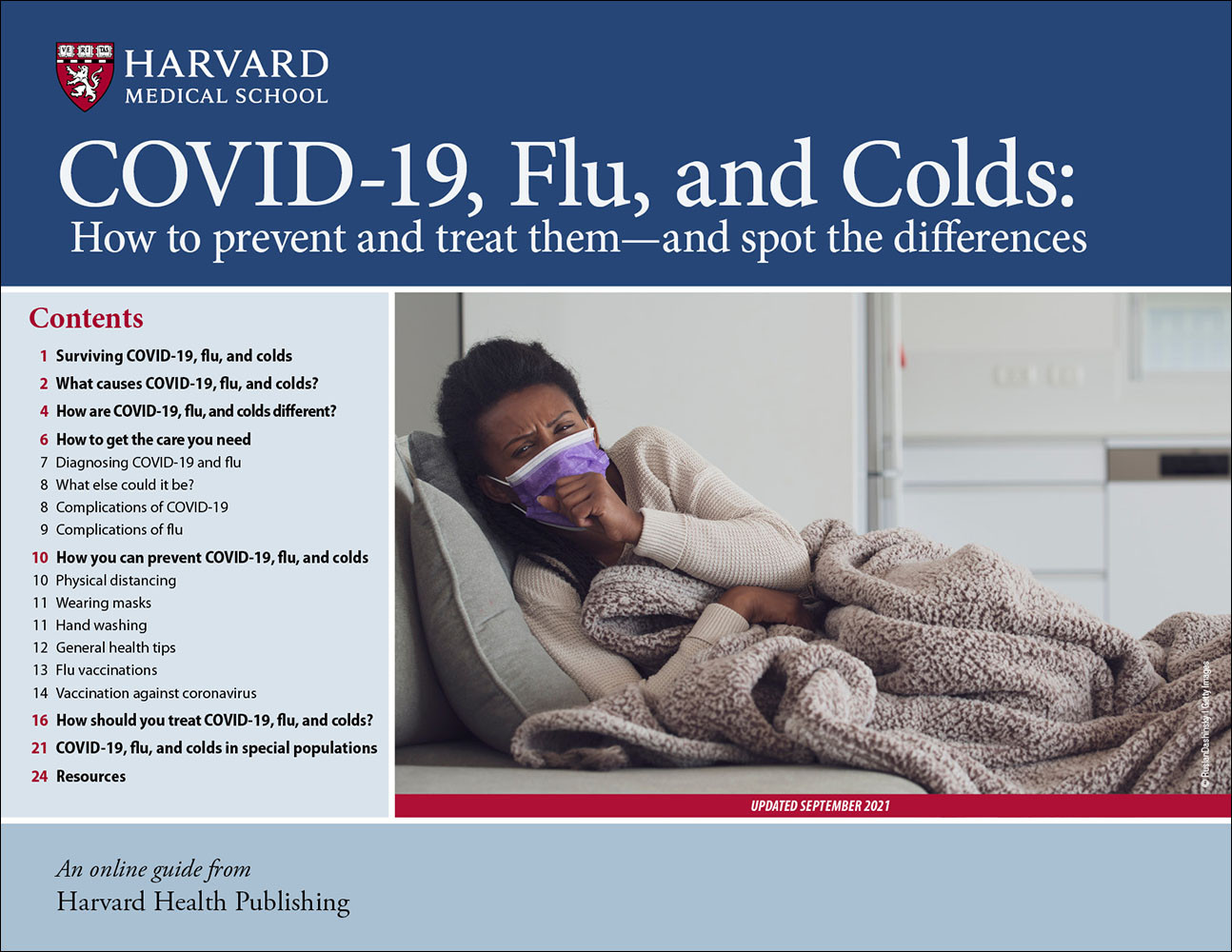How do these viruses spread?
The main way that viruses spread from person to person is through the tiny droplets that sick people propel when they cough, sneeze, or talk. These droplets can fly six feet or more in the air, and they can spread the virus if they deposit on someone’s mouth or nose, or they get inhaled into a person’s lungs. It’s also likely that the new coronavirus becomes aerosolized, remaining suspended in the air for a period of time and drifting farther than six feet, which makes mask wearing and physical distancing (often called social distancing) imperative to preventing spread of the virus.
In the case of coronavirus, an infected person doesn’t need to show symptoms to spread the virus. In fact, the Centers for Disease Control and Prevention (CDC) estimates that 40% of virus transmission happens before infected people show symptoms. After people are infected, they can have no symptoms for several days, or for the duration of their illness. With a cold, you’re contagious the entire time you have symptoms, but you’re most contagious right after you catch the infection, before you have symptoms. With flu, you’re most contagious from the day before your symptoms start until about the fifth day of symptoms. With any of these illnesses, it’s important to stay home when you or your child is most infectious.












